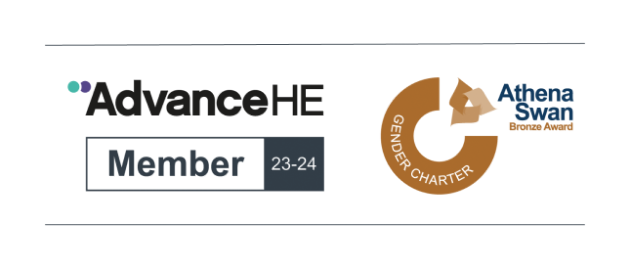This paper is available for the academic year 2023-24.
Paper B3 is made up of two distinct components: Translation into German and German through the Media (MD). Together, the B3 Translation and MD elements will help you develop your linguistic skills and cultural competence in a range of areas. Teaching for both parts is organised by the Section. Students receive fortnightly classes for both plus a fortnightly Sozialgeschichte lecture in German to further support their acquisition of the language.
The B3 paper is only available to Part IB (i.e., second-year students) who had an A-level or equivalent in the language when they arrived. In addition, if your other language is ab initio, you can choose not to do this paper in German and instead do an extra literature/linguistics paper from the schedule of IB papers. If, however, both your languages are post A-level, then this paper (both components) is compulsory.
The three columns of this paper (translation into German, media classes and lectures in German) are designed to reinforce each other. The topics of the lectures are chosen to correspond to the fortnightly classes in translation and MD.
Translation into German:
The English passages for this exercise are usually chosen because they present a particularly interesting challenge when being translated into German. This could be a question of choosing the right expression, the correct construction or the appropriate register.
GEMD, German through the media:
The aim here is to practice listening comprehension – also as a preparation for the Year Abroad – and to expose students to a range of media formats (documentaries, polemical clips, interviews, talk shows).
Sozialgeschichte Lectures:
In fortnightly lectures, all given by native speakers, the topics which also appear in MD and translation classes are introduced, providing students with a glossary of central vocabulary. The lectures reinforce listening comprehension skills, preparing students for their Year Abroad.
If you attend all classes and carry out all the set work for the B3 Translation paper, by the end of the year you will be able to:
- Identify translation problems in passages taken from a range of sources (for example, literature, essay, newpaper articles)
- Develop and apply a set of strategies to tackle translation problems
- Acquire and use with confidence a wide range of vocabulary and idiom in German
- Develop your ability to compensate effectively and resourcefully for lexical gaps
- Have a strong command of German grammar
- Develop your awareness of register and tone in German
- Hone your sensitivity to stylistic features in English texts
- Enhance your understanding of contrastive grammar in English and German
If you follow the course (attending classes, supervisions, and lectures, as appropriate) and carry out all the set work for the MD paper, you will meet the following aims and objectives:
- Broaden your understanding of the culture of the German-speaking world
- Consolidate and further develop your command of German, with a particular focus on oral skills and aural comprehension
- Engage critically with content discussed in videos
- Enhance your ability to write expository-argumentative texts in German
- Develop your ability to discuss orally topics of cultural import concisely and effectively
- Improve your research skills using authentic written and audiovisual sources in German
- Develop your presentation skills
Teachers’ own materials and past papers.
http://www.mml.cam.ac.uk/undergraduates/translation-toolkit/intro
S. Fagan, Using German Vocabulary, (2004)
M. Durrell, Hammer's German Grammar and Usage, (2011), and the accompanying work-book, Durrell, Kohl and Loftus, Practising German Grammar, (2011)
Translation:
The Section organises fortnightly classes. Students will be given passages for translation as homework and will receive individual and detailed feedback on their work. In classes, a variety of possible translations into German will be discussed, reinforcing basic grammar points and idiomatic expressions. Points of grammar studied in the first year are revised and consolidated while more advanced grammar is introduced and practiced. In class, points of grammar and vocabulary are explained and analysed. Students are provided with a study program, detailing accompanying grammar and vocabulary exercises for independent study.
GEMD
The German Through the Media (MD) component is taught in a fortnightly class during Michaelmas and Lent (no teaching in Easter), complemented by 8 supervisions (4 in Michaelmas and 4 in Lent). You will also be advised to attend the Sozialgeschichte Lectures in German or view equivalent recorded content. The MD paper offers you the opportunity to engage with authentic material/sources in German and to explore a number of cultural topics relevant to the German-speaking world while building up your vocabulary and your command of both spoken and written German.
Sozialgeschichte Lectures
These lectures in German provide an excellent opportunity to hear a variety of authentic spoken German. The topics are chosen to introduce students to current affairs in German speaking countries (for example, new films in German, the literary scene in Berlin, state security and privacy, migration) preparing students not just for the topics dealt with in translation and GEMD classes but also for discussions they might encounter while on their Year Abroad.
For the GEB3 Translation Moodle site, please see here, and for GEMD [forthcoming].
This paper consists of two parts:
1- Two passages in English, of up to 400 words in total, for translation into German. This part carries 60% of the B3 paper. The examinations lasts 2 hours.
The German Through the Media component will be assessed via a 5-7 minute video recording to be submitted in week 4 of the Easter term. The topic of your video must be related to one of the four course topics. Content and language will be equally weighted. You will also need to submit a 150-word summary of your video which will not be assessed.
For all German past papers, see here. Examiners’ Reports can be found here.
Marking criteria for this paper will be released and uploaded here in Michaelmas term 2022
Prof Silke Mentchen |




